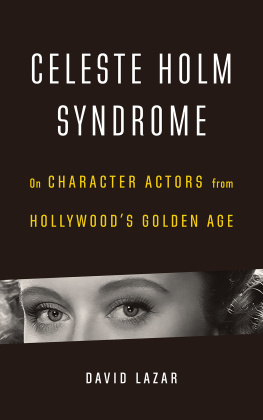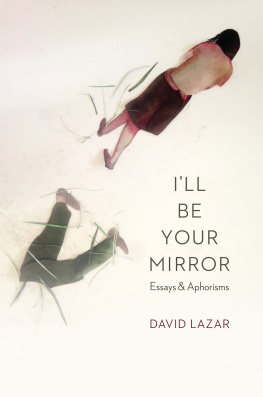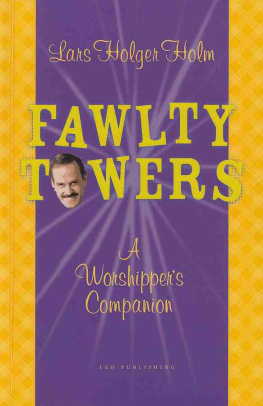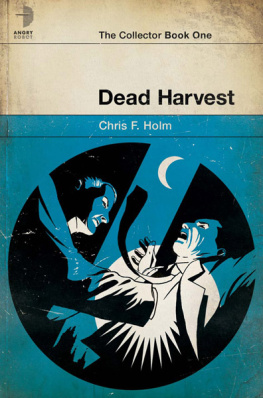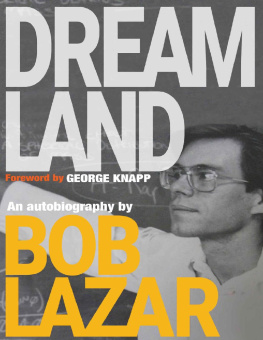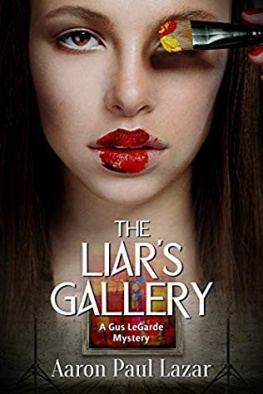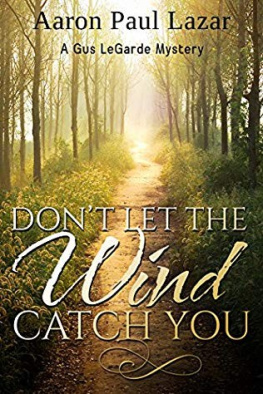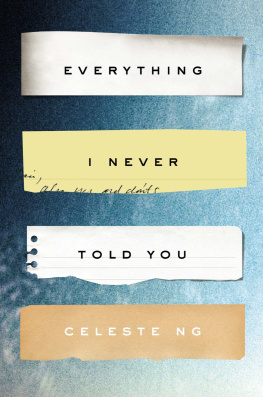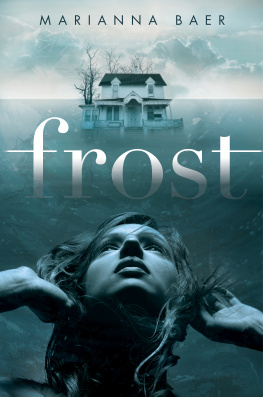David Lazar - Celeste Holm Syndrome
Here you can read online David Lazar - Celeste Holm Syndrome full text of the book (entire story) in english for free. Download pdf and epub, get meaning, cover and reviews about this ebook. publisher: Nebraska, genre: Detective and thriller. Description of the work, (preface) as well as reviews are available. Best literature library LitArk.com created for fans of good reading and offers a wide selection of genres:
Romance novel
Science fiction
Adventure
Detective
Science
History
Home and family
Prose
Art
Politics
Computer
Non-fiction
Religion
Business
Children
Humor
Choose a favorite category and find really read worthwhile books. Enjoy immersion in the world of imagination, feel the emotions of the characters or learn something new for yourself, make an fascinating discovery.
- Book:Celeste Holm Syndrome
- Author:
- Publisher:Nebraska
- Genre:
- Rating:5 / 5
- Favourites:Add to favourites
- Your mark:
- 100
- 1
- 2
- 3
- 4
- 5
Celeste Holm Syndrome: summary, description and annotation
We offer to read an annotation, description, summary or preface (depends on what the author of the book "Celeste Holm Syndrome" wrote himself). If you haven't found the necessary information about the book — write in the comments, we will try to find it.
Celeste Holm Syndrome — read online for free the complete book (whole text) full work
Below is the text of the book, divided by pages. System saving the place of the last page read, allows you to conveniently read the book "Celeste Holm Syndrome" online for free, without having to search again every time where you left off. Put a bookmark, and you can go to the page where you finished reading at any time.
Font size:
Interval:
Bookmark:
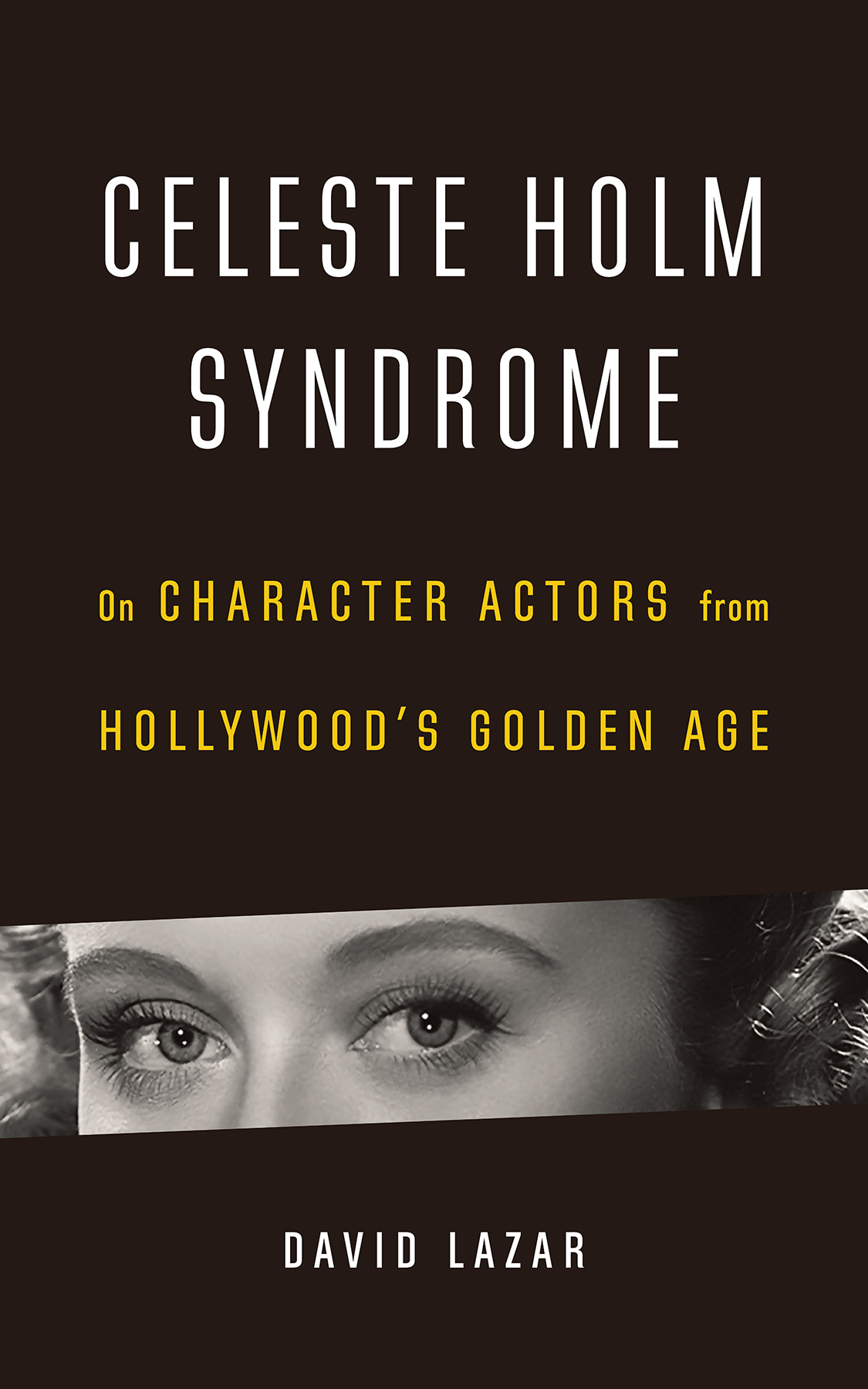
This gorgeously written book makes many brilliant observations about the tiny nuances of character actors and in so doing makes an unassailable case that because we are all bit players in the cosmic firmament, interesting and endearing people are immeasurably more compelling than heroes (whoever they might be).
David Shields, author of The Trouble with Men: Reflections on Sex, Love, Marriage, Porn, and Power
A great book about character actors would be enough, but Lazars imaginative and ingratiatingly erudite series of meditations is much more. The author spins sprightly essays from each subject, allowing biography and personal speculation to reinforce and enrich each other. The sublime tribute to Oscar Levant and melancholia is, as they say, worth the price of admission.
Molly Haskell, author of From Reverence to Rape: The Treatment of Women in the Movies
David Lazar
University of Nebraska Press | Lincoln
2020 by the Board of Regents of the University of Nebraska
Cover designed by University of Nebraska Press; cover image is from the interior.
Author photo Greg Deakins.
Acknowledgments for the use of previously published material appear on page ix, which constitutes an extension of the copyright page.
All rights reserved.
Library of Congress Cataloging-in-Publication Data
Names: Lazar, David, 1957 author.
Title: Celeste Holm syndrome: on character actors from Hollywoods golden age / David Lazar.
Description: Lincoln: University of Nebraska Press, [2020]
Identifiers: LCCN 2020008833
ISBN 9781496200457 (paperback)
ISBN 9781496224385 (epub)
ISBN 9781496224392 (mobi)
ISBN 9781496224408 (pdf)
Subjects: LCSH : Motion picture actors and actressesUnited StatesBiography. | Characters and characteristics in motion pictures.
Classification: LCC PN 2285 . L 39 2020 | DDC 791.4302/80922 [B]dc23
LC record available at https://lccn.loc.gov/2020008833
The publisher does not have any control over and does not assume any responsibility for author or third-party websites or their content.
What does the truth look like?
Its between appearing and disappearing.
From Detective, Godard
A man is a method, a progressive arrangement, a selecting principle.
Emerson
Thank you to the editors of the following periodicals in which my essays first appeared:
- Cincinnati Review: My Two Oscars: On Wit and Melancholy
- Fourth Genre: Martin Balsam: The Best Possible Arnold Burns
- Superstition Review: Celeste Holm Syndrome: The Eyes of Sister Scholastica
An earlier version of My Family Romance appeared in my book The Body of Brooklyn (University of Iowa Press, 2003) as My Little Heroesit has been substantially revised.
I am grateful to the John Simon Guggenheim Foundation for the fellowship that helped me in the early stages of this manuscript.
And thank you to the following friends, family, and associates who aided me, directly or indirectly, with this book: Alyce Miller, William Fraser, Patsy Kelly, Martin McGovern, Alicia Christenson, Lois Zamora, Scott Lazar, Cathleen Calbert, Mary Cappello, Mike Mazurki; and to my parents, Leo and Rhoda Lazar, who in my forlorn memories are watching some melodrama from the 40s in their small bedroom in Brooklyn.
This book is dedicated to Scott Lazar, who accompanied me in our teens on our epic trips to the Bleeker Street Theater, the Thalia, the New Yorker, the Art, the Cinema Village, the Carnegie Hall Cinema...
When I started writing about character actors, everyone I know who knows movies and actors asked me if I was writing about Thelma Ritter. Theres royalty to that, a kind of character actor superstardom. It also made me not want to write about Thelma Ritter, since Ive been resisting the grains of pressure and expectation since I was young enough to know who Thelma Ritter was, which would have been around seven or so. My parents loved movies, and my brother and I followed suit, for many years absorbing whatever was available on the five channels of our black-and-white and then wobbly color TV in Brooklyn in the 60s, and thenstill my brother and Ibounding into Manhattan on the D or F trains, to the art cinemas and revival houses in the early and mid-1970s, for many of us a kind of cinematic utopia, temporally, geographically, and historically.
To the point: I grew up a casual cinephile, the way you love things seemingly as a matter of course, and only later are spurred to understand them more deeply: things like family, history, and cinema. Part of my sentimental education was the recognition and appreciation of character actors. This has stayed with me. Character actors frequently haveor at least in the studio system of the Dream Factory hadlong careers, careers that tended to follow one of two models: They brought an indelible character with them from film to film, so could make an impression quickly, registering a familiar set of characteristics with the audience simply, after a time, by appearing. Or their essential personality was effaced as they disappeared into each new role. The cast of characters Ive written about here, all of whom I have watched since my childhood, follows the limitations of the Dream Factory demographicallyit was only after the breakup of the studio system that Hollywoods character base widened in terms of color, fuller possibilities of gender and sexuality, wider and wilder representations of behavior. But that misfortune, too, led to sometimes fascinating coded behaviors in the contours of the system of the Code.
Kierkegaard writes that character is engraved, deeply etched. And we sense the character of certain character actors etched into what they carry with them. On the other hand, some character actors blend chameleon-like into a variety of roles, utility performers who step in and can be almost anything needed, repressing their own personalities. In Kierkegaardian terms, they erase, efface. Leading actors also share these templates: Bette Davis could be Queen Victoria or Margo Channing, Charlotte Vale (Now, Voyager) or Charlotte Hollis (Hush, Hush Sweet Charlotte), a range that would make Gary Cooper cry. Gary Cooper brought a reasonably stable set of characteristics to his roles, which, as Dorothy Parker said of Katherine Hepburn, ran the gamut of emotions from A to B.
My interest in character actors might be the same as your interest in the gravediggers, or Rosencrantz and Guildenstern: I grew used to paying attention to them and wondering who they were, elaborating their stories. Have you ever watched a film and just focused on the supporting actors? Its an entirely interesting, if slightly surreal exercise. As a child who felt as though he were destined to play a supporting role, a watching role, I starting looking at how Edward Everett Horton was looking at Fred Astaire, how Mike Mazurki was looking at Tyrone Power, or how, yes, Thelma Ritter was looking at James Stewart. The action, it seemed to me, was on the sidelines. Thats where people said more interesting things (character actors could be given lines that evaded the Code, the strict regulating of Hollywoods moral and political presentations in film by the Hayes Motion Picture Code, starting in 1934) simply because less attention was paid to what they said and did. You, meaning I, learned this if you watched closely enough. Did she/he really say that? Did Eve Arden really get away with that? It made character actors intimately and ultimately more interesting to me.
Font size:
Interval:
Bookmark:
Similar books «Celeste Holm Syndrome»
Look at similar books to Celeste Holm Syndrome. We have selected literature similar in name and meaning in the hope of providing readers with more options to find new, interesting, not yet read works.
Discussion, reviews of the book Celeste Holm Syndrome and just readers' own opinions. Leave your comments, write what you think about the work, its meaning or the main characters. Specify what exactly you liked and what you didn't like, and why you think so.

